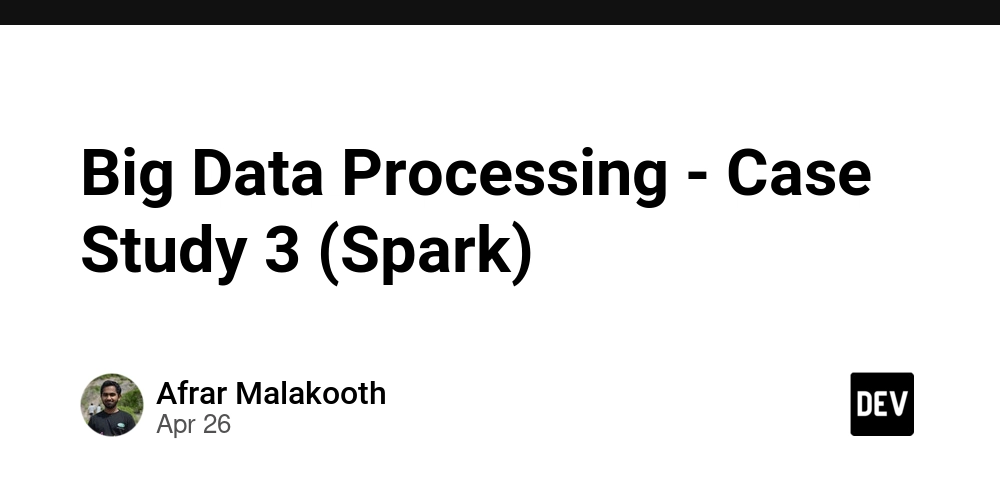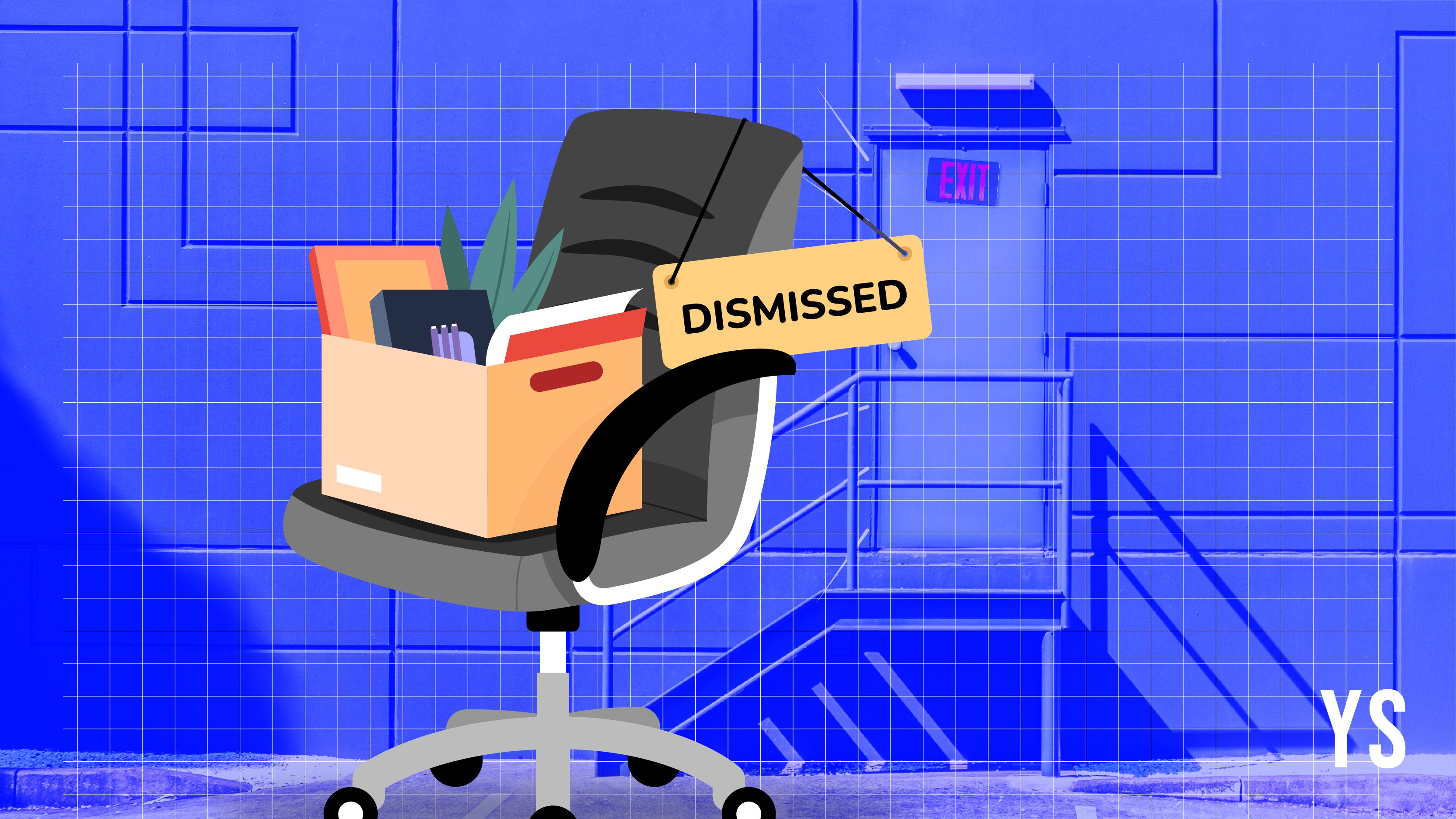Everyone Feels Like a Fraud. The Good Ones Just Admit It.
It’s a quiet, creeping voice. Sometimes it whispers after a standup: “You sounded confident, but do you actually know what you’re doing?” Sometimes it shows up in your code review queue: “Everyone else’s PRs look so clean. Yours feels like a science project held together with vibes.” Other times, it waits until just before bed, when your brain helpfully replays the moment you said “idempotent” with the wrong emphasis. Twice. Imposter syndrome isn’t a bug you fix once you’re “senior.” It evolves. It adapts. It shape-shifts into new forms just when you think you’ve leveled up. And if you don’t learn to name it, laugh at it, and live with it, it’ll keep convincing you that this time, it’s not imposter syndrome. It’s just... you. Here’s the real bug: it’s not feeling like a fraud. It’s pretending you don’t. Let’s pull back the curtain. Meet Your Inner Imposters You’re not alone. You’re just surrounded by high-functioning weirdos with anxiety issues, same as you. Let’s take a tour through the greatest hits of senior-level self-doubt: 1. The Lucky Fluke “I’m not actually that good. I just keep getting lucky.” You’ve survived five reorgs, three CTOs, and one catastrophic deploy. People trust you. They quote you in documents. But your brain insists it’s all coincidence - like you’ve somehow speed-ran your career on a series of fluke dice rolls and social sleight-of-hand. Spoiler: you don’t accidentally become the person people count on. But imposter syndrome doesn’t care about facts. It cares about vibes. And your vibe is currently “confidence? never met her.” 2. The Knowledge Hoarder “If I don’t know everything, I’m nothing.” You’ve turned your bookmarks bar into a cry for help. You hoard context like a doomsday prepper hoards canned beans. You pretend you totally remember that meeting from two months ago, even though you have no idea who “River (they/them)” is or why their migration plan makes you sweat. This version of imposterdom convinces you that your value is tied to being the one who knows. Everything. All the time. So you avoid asking questions, hide your confusion, and slowly build a panic tower out of Slack threads and Notion docs. And somewhere, deep down, a voice like Ricky Bobby’s dad echoes in your skull: “If you ain’t first, you’re last.” (See also: Ask Dumb Questions Early. Seriously. Free yourself.) 3. The Shape-Shifter “I’ll just mirror the smartest person in the room and hope nobody looks too closely.” You pride yourself on “reading the room,” which is code for: I’m constantly scanning for who to become. You match vocab. You mimic phrasing. You nod sagely while Googling under the table like a panicked student in an open-book exam. You're not faking. You're adapting. But over time, this mask-wearing gets exhausting. You start to lose track of what you actually think, because you’ve been so busy constructing the Ideal Engineer Costume - part GPT, part Product Whisperer, part “stoic but approachable” LinkedIn archetype. It’s like playing Among Us as a Shapeshifter Impostor - you can mimic others perfectly, but eventually, someone’s going to hit the big red button and call you out for being sus. Especially if you vent your opinions too quickly. Reminder: real influence (and respect) doesn’t come from blending in. It comes from being brave enough to sound wrong out loud. (See also: Lead Without a Title) 4. The “Not Technical Enough” One “I can lead people, design systems, and mentor juniors - but I never wrote a compiler, so...” You’re the glue. The architect. The one who spots that critical edge case before it takes down the whole stack. But deep down, some outdated voice in your head insists that real engineers build game engines in C and use light mode unironically. You could design a system that saves the company a million bucks, but one snarky comment about “real devs” from someone whose entire personality is bitwise operations? Boom - existential spiral. Newsflash: the industry has changed. The hardest problems in tech aren’t about bits - they’re about behavior. And the people solving them aren’t the ones hiding in a cave with a math degree and a superiority complex. So no, you didn’t invent Kubernetes in your sleep. But you did prevent three projects from crashing into the sun this quarter. That counts. 5. The Chronic Comparer “Everyone else seems fine. I must be the only one who feels this way.” Ah yes. The classic. You’re scrolling through your feed, half-reading someone’s blog post about rewriting a critical system in Rust “just for fun,” while you’re trying to remember if you brushed your teeth today. You compare their curated highlight reel to your unfiltered brain vomit and decide, definitively, that you are the weak link. This is how high-functioning people burn out: by benchmarking themselves against a fictional character made of everyone else’s best moments, filtered through a fog

It’s a quiet, creeping voice.
Sometimes it whispers after a standup:
“You sounded confident, but do you actually know what you’re doing?”
Sometimes it shows up in your code review queue:
“Everyone else’s PRs look so clean. Yours feels like a science project held together with vibes.”
Other times, it waits until just before bed, when your brain helpfully replays the moment you said “idempotent” with the wrong emphasis. Twice.
Imposter syndrome isn’t a bug you fix once you’re “senior.”
It evolves. It adapts. It shape-shifts into new forms just when you think you’ve leveled up. And if you don’t learn to name it, laugh at it, and live with it, it’ll keep convincing you that this time, it’s not imposter syndrome. It’s just... you.
Here’s the real bug: it’s not feeling like a fraud.
It’s pretending you don’t.
Let’s pull back the curtain.
Meet Your Inner Imposters
You’re not alone. You’re just surrounded by high-functioning weirdos with anxiety issues, same as you. Let’s take a tour through the greatest hits of senior-level self-doubt:
1. The Lucky Fluke
“I’m not actually that good. I just keep getting lucky.”
You’ve survived five reorgs, three CTOs, and one catastrophic deploy. People trust you. They quote you in documents. But your brain insists it’s all coincidence - like you’ve somehow speed-ran your career on a series of fluke dice rolls and social sleight-of-hand.
Spoiler: you don’t accidentally become the person people count on.
But imposter syndrome doesn’t care about facts. It cares about vibes. And your vibe is currently “confidence? never met her.”
2. The Knowledge Hoarder
“If I don’t know everything, I’m nothing.”
You’ve turned your bookmarks bar into a cry for help. You hoard context like a doomsday prepper hoards canned beans. You pretend you totally remember that meeting from two months ago, even though you have no idea who “River (they/them)” is or why their migration plan makes you sweat.
This version of imposterdom convinces you that your value is tied to being the one who knows. Everything. All the time. So you avoid asking questions, hide your confusion, and slowly build a panic tower out of Slack threads and Notion docs.
And somewhere, deep down, a voice like Ricky Bobby’s dad echoes in your skull:
“If you ain’t first, you’re last.”
(See also: Ask Dumb Questions Early. Seriously. Free yourself.)
3. The Shape-Shifter
“I’ll just mirror the smartest person in the room and hope nobody looks too closely.”
You pride yourself on “reading the room,” which is code for: I’m constantly scanning for who to become. You match vocab. You mimic phrasing. You nod sagely while Googling under the table like a panicked student in an open-book exam.
You're not faking. You're adapting.
But over time, this mask-wearing gets exhausting. You start to lose track of what you actually think, because you’ve been so busy constructing the Ideal Engineer Costume - part GPT, part Product Whisperer, part “stoic but approachable” LinkedIn archetype.
It’s like playing Among Us as a Shapeshifter Impostor - you can mimic others perfectly, but eventually, someone’s going to hit the big red button and call you out for being sus. Especially if you vent your opinions too quickly.
Reminder: real influence (and respect) doesn’t come from blending in.
It comes from being brave enough to sound wrong out loud.
(See also: Lead Without a Title)
4. The “Not Technical Enough” One
“I can lead people, design systems, and mentor juniors - but I never wrote a compiler, so...”
You’re the glue. The architect. The one who spots that critical edge case before it takes down the whole stack.
But deep down, some outdated voice in your head insists that real engineers build game engines in C and use light mode unironically.
You could design a system that saves the company a million bucks, but one snarky comment about “real devs” from someone whose entire personality is bitwise operations? Boom - existential spiral.
Newsflash: the industry has changed.
The hardest problems in tech aren’t about bits - they’re about behavior.
And the people solving them aren’t the ones hiding in a cave with a math degree and a superiority complex.
So no, you didn’t invent Kubernetes in your sleep. But you did prevent three projects from crashing into the sun this quarter.
That counts.
5. The Chronic Comparer
“Everyone else seems fine. I must be the only one who feels this way.”
Ah yes. The classic. You’re scrolling through your feed, half-reading someone’s blog post about rewriting a critical system in Rust “just for fun,” while you’re trying to remember if you brushed your teeth today. You compare their curated highlight reel to your unfiltered brain vomit and decide, definitively, that you are the weak link.
This is how high-functioning people burn out: by benchmarking themselves against a fictional character made of everyone else’s best moments, filtered through a fog of sleep deprivation and self-loathing.
Also, side note: you have no idea how that person is actually doing. For all you know, they cried in the shower this morning and bribed ChatGPT to write that post.
Comparison is a con. A pyramid scheme of self-worth.
Cash out before it costs you your sanity.
(See also: Refactor, Recharge, Repeat. Your nervous system will thank you.)
What If This Is Just... Normal?
At this point, you might be thinking: “Wait... am I all of these?”
You’re not a schizo. (Unless you are - in which case, hi, and also that’s a different article.)
More likely: you’re a smart, self-aware person doing complex work in a messy, high-stakes system. Of course your brain is going to freak out sometimes.
Imposter syndrome is proof that you care. It means you’re thoughtful, self-aware, and not totally delusional. (Congrats.)
But here’s the shift:
The goal isn’t to get rid of it.
It’s to stop hiding it.
When you say “I’m not totally sure how this part works,” something magical happens: other people exhale. Because they’ve been holding their breath, too.
When you say “I felt out of my depth here,” you give your team permission to be human. You lower the stakes. You build trust faster than any strategy doc ever could.
Pretending you know everything doesn’t make you look senior.
It makes you look scared.
Admitting what you don’t know? That’s what grown-ass engineers do.
Don’t Fake Confidence. Model Courage.
You don’t need to conquer imposter syndrome. You just need to stop treating it like a secret shame.
The best engineers - the ones people follow, the ones who create safe, sane, productive teams - they still feel like frauds sometimes.
They just don’t let it control them.
So next time the voice shows up?
Smile. Tip your hat.
And keep going anyway.
Because in the end, we’re all a little sus.










































































































































































![[The AI Show Episode 144]: ChatGPT’s New Memory, Shopify CEO’s Leaked “AI First” Memo, Google Cloud Next Releases, o3 and o4-mini Coming Soon & Llama 4’s Rocky Launch](https://www.marketingaiinstitute.com/hubfs/ep%20144%20cover.png)


















































































































































































.jpg?width=1920&height=1920&fit=bounds&quality=70&format=jpg&auto=webp#)























































































_Olekcii_Mach_Alamy.jpg?width=1280&auto=webp&quality=80&disable=upscale#)














































































































![Apple Drops New Immersive Adventure Episode for Vision Pro: 'Hill Climb' [Video]](https://www.iclarified.com/images/news/97133/97133/97133-640.jpg)

![Most iPhones Sold in the U.S. Will Be Made in India by 2026 [Report]](https://www.iclarified.com/images/news/97130/97130/97130-640.jpg)
![Apple to Shift Robotics Unit From AI Division to Hardware Engineering [Report]](https://www.iclarified.com/images/news/97128/97128/97128-640.jpg)































































































































